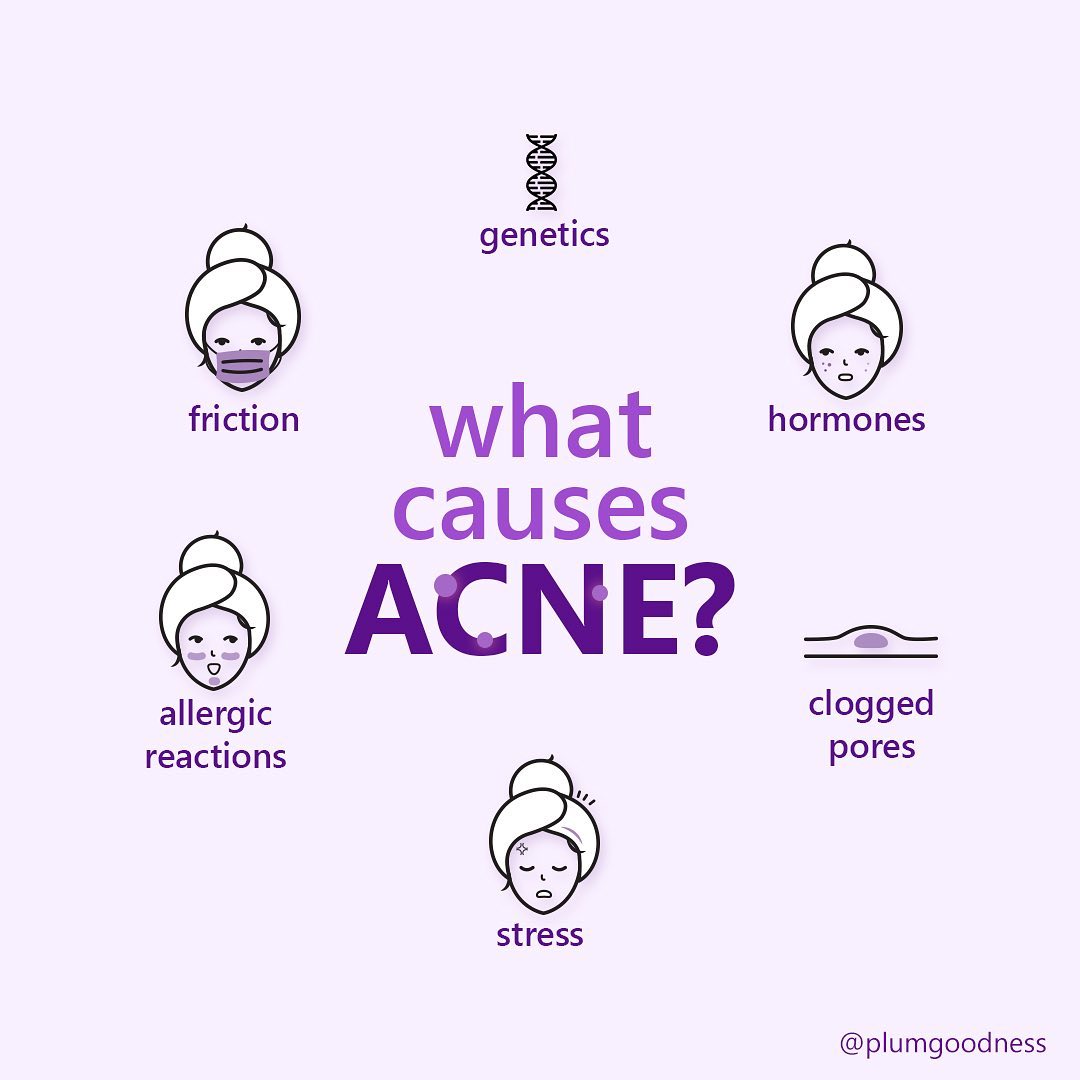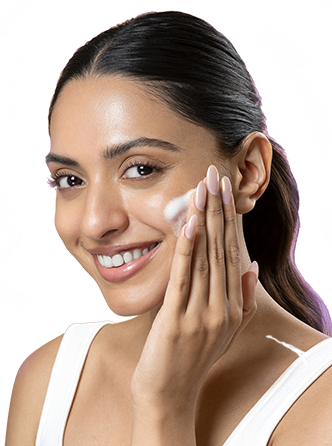
IN THIS ARTICLE
Acne is a broad term that describes varying types of bumps on the skin—from small, red bumps to inflammed pimples that contain pus. The key to finding the right way to deal with acne is identifying the type and cause. So if you have acne-prone skin or are someone who deals with a zit from time to time, read ahead as we delve into everything there is to know about this pesky condition.
What is acne? An overview:
A common condition, acne occurs when hair follicles under the skin get clogged with sebum (oil) or dead skin cells. When excess sebum, dead skin cells and bacteria push deeper into the skin, it causes inflammation or red swollen bumps we call pimples.
What are the types of acne?

You can get two types of acne:
1) Inflammatory: Sebum, dead skin cells and bacteria clog pores resulting in painful, red, swollen papules, pustules, or cystic acne.
2) Non-inflammatory: This includes blackheads and whiteheads, and this type of acne does not cause swelling.
Types of inflammatory acne:
Pustules: Pimples containing white or yellow pus, usually red at the base
Papules: Small red or pink inflamed bumps on the skin. They are just like pustules, minus the pus
Cysts: Deep, painful pus-filled boils under the skin
You can also get fungal acne which is a type of infection that is itchy and usually occurs when an excess of yeast develops in the hair follicles.
What causes acne?

Your acne may be caused due to clogged pores, stress, fluctuating hormone levels, an allergic reaction, genetics or friction (with your mask).
What is maskne?

‘Maskne’ is a fairly new phenomenon that began during the pandemic when wearing a mask became the norm. The mask tends to cause friction and trap sweat and the hot air we breathe out—leading to clogged pores. The best way to deal with maskne is to wash your face regularly with a gentle cleanser, use an oil-free moisturizer, minimize cosmetics under the mask, use fresh masks every day and cleanse reusable masks thoroughly after every use.
Dos and don'ts for acne-prone skin:
How to deal with a breakout

The best way to deal with a fresh breakout is to use a spot treatment, use an oil-free moisturizer and exfoliate weekly with a gentle peel to get rid of dead skin cells. You could try our 10% AHA + 5% PHA + 0.5% BHA Exfoliating Peel with Green Tea.
What NOT to do when you get a pimple

- Do not pick or pop pimples, doing so could leave acne scars on your skin
- Refrain from touching your face. By doing so you are only introducing bacteria to your skin
- Do not use lemon, baking soda or toothpaste on a zit
- Limit sun exposure to reduce sun damage and sunburn. Always use SPF in the day (indoors and outdoors)
Skincare routine for acne-prone skin:

DAILY:
Step 1: Use a cleansing balm or micellar water for your first cleanse (PM only)
Step 2: Use a pore cleansing face wash to get rid of all the deep-seated dirt and gunk (Step 1 in the AM & Step 2 in the PM)
Step 3: Use a toner to gently exfoliate and prep your skin for better absorption (AM & PM)
Step 4: AM: Use an oil-free moisturizer and follow with sunscreen. PM: Hydrate with an ultra-light clarifying gel for oil-free mornings
Step 5: Spot treat any pesky zits with a spot treatment gel
WEEKLY:
Step 1: Apply a clay mask to absorb excess oil or exfoliate with a gentle peel
Our Green Tea range is packed with acne-fighting ingredients like green tea extracts, glycolic acid and willow bark extract (a natural source of salicylic acid) to combat oiliness, acne and gently exfoliate dead skin cells.
Final thoughts
Acne can be difficult to deal with. But it’s important to remember that it is a normal skin condition and a lot more common than you think.
In the case of hormonal, cystic acne or a severe case of recurring acne, we recommend visiting your dermatologist for a diagnosis and treatment plan.
FAQs
Q1. What causes acne?
Acne can have several causes namely clogged pores, stress, fluctuating hormone levels, allergic reactions, genetics or friction (with your mask).
Q2. What is the best acne treatment?
Besides diet and lifestyle changes, the best way to treat acne is with science-backed acne fighting ingredients like salicylic acid, glycolic acid, green tea extracts and niacinamide. If you have a severe form of acne, we recommend consulting your dermatologist.





















